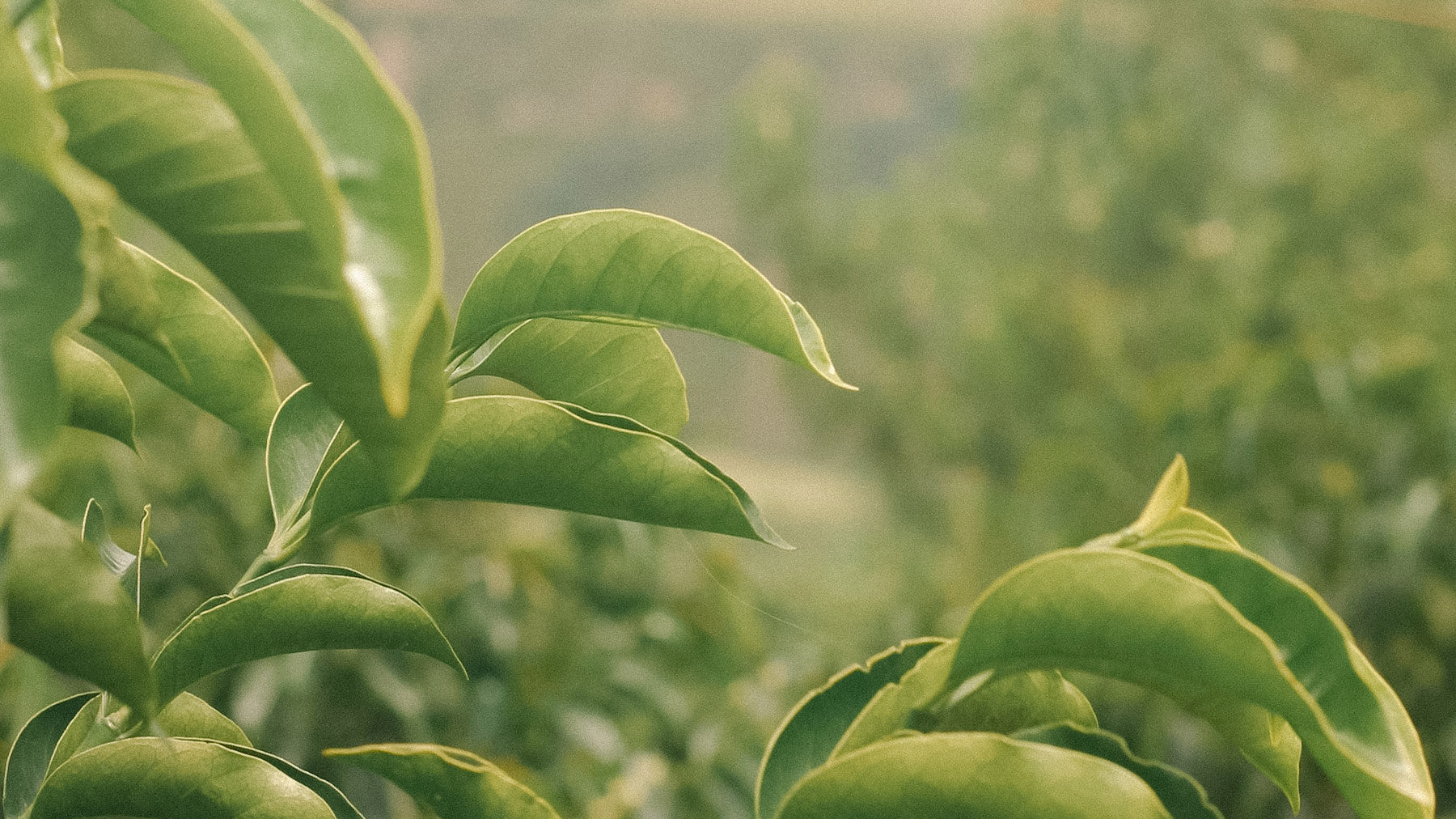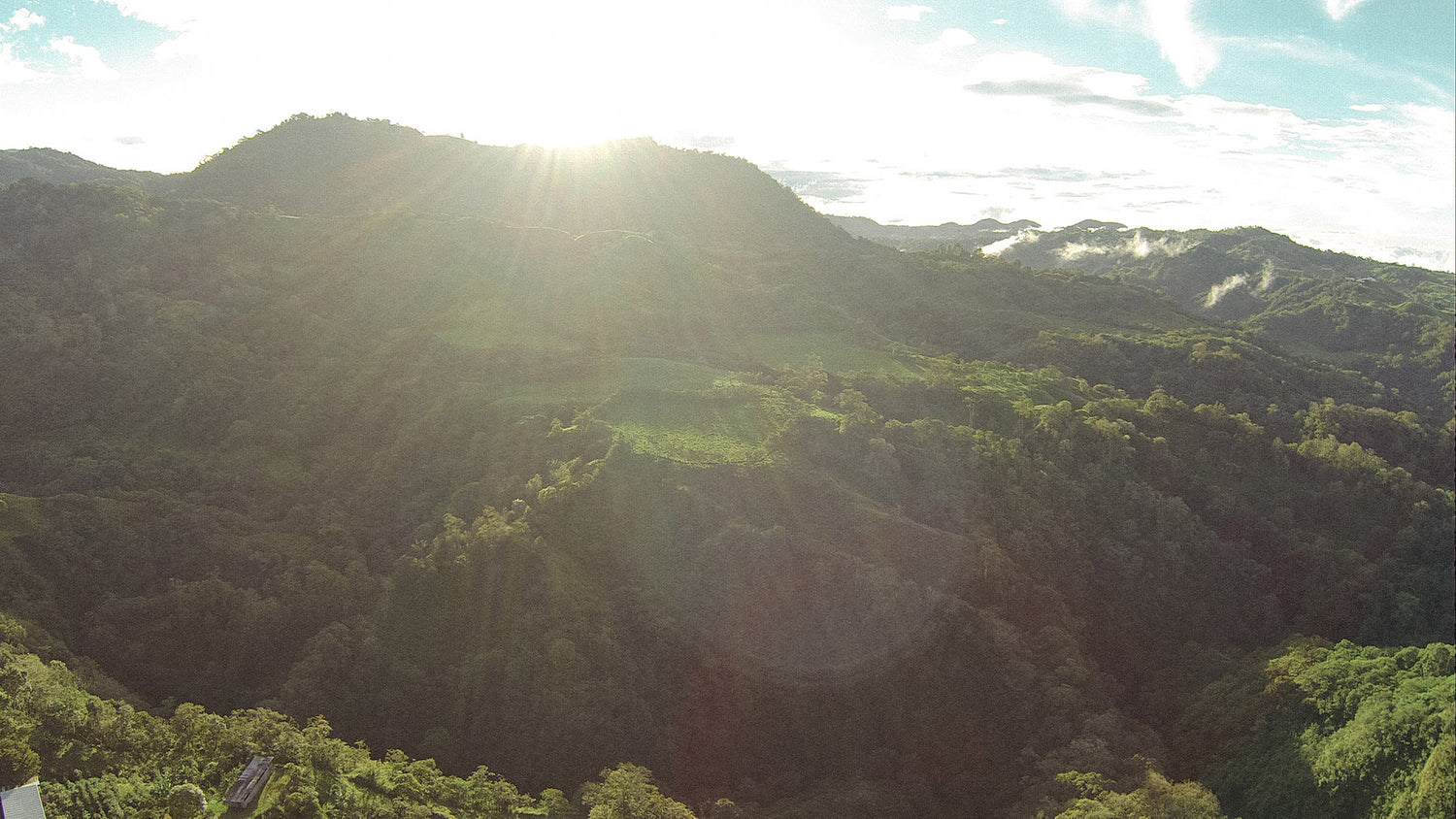The coffee bean comes from the coffee plant. So you could basically answer the question "Is coffee vegan?" with a yes. But as is often the case, the industry doesn't make it easy for us. Wine also comes from a plant and is sometimes not vegan (it is often processed with gelatin to remove impurities). In some cases, it can be similar with coffee. We'll take a closer look at the topic and explain to you when coffee is not vegan, what you should look out for and why our coffee is definitely vegan.
Is coffee vegan? – basically yes!
As mentioned at the beginning, the coffee beans from which we make our beloved drink are the seeds of the coffee cherry. In other words, they are plant parts and therefore vegan. But coffee goes through a long journey with many production steps from cultivation to your cup. And in some of these steps it could be de-veganized.
Is coffee vegan? – sometimes no!
Sometimes coffee beans are coated with an additive before further processing or transport. This is mainly used for decaffeinated coffee, which sometimes has a rough surface after the caffeine has been removed. To make the beans more fluid again - i.e. to give them a smooth surface - they are coated with an additive, which is sometimes of animal origin. (Our decaffeinated coffee does not contain any additives.)

Is coffee vegan? – which additives are allowed
In the EU, everything is regulated by law or regulation, including which substances can be used to coat coffee beans (if that is even necessary). The EU additives regulation allows beeswax (yellow and white), shellac, candelilla wax and carnauba wax as coating agents for coffee beans. And some of it is not vegan. As the name suggests, beeswax comes from the busy pollinators. So it is not vegan and therefore out. The resinous secretion of the scale insect (Kerria lacca) is needed for shellac. During production, numerous live lice are processed, which are still hidden in residues of the resin on leaves and pieces of bark. Therefore, shellac is not vegan and not vegetarian. That leaves the vegetable candelilla wax, which is obtained from the leaves and stems of the candelilla bush (Euphorbia antisyphilitica) that grows in northern Mexico and the southwestern United States, and carnauba wax, a natural wax from the Brazilian carnauba palm.
The Lebensmittelklarheit.de association said that the choice of coffee sold in Germany is often limited because most manufacturers use carnauba wax. However, there is no obligation to label the processing aids.
In any case, here are the E numbers with which the substances can possibly be found, if marked.
- E 901 Beeswax, white and yellow
- E 902 Candelilla wax
- E 903 Carnauba wax
- E 904 Shellac
If in doubt, it is best to ask the manufacturer or roaster. They will know whether their coffee is natural or has been treated with additives.
Is coffee vegan? – for us it is
We pay a lot of attention to sustainability and the coffees we process are also organically grown, so we like to avoid any kind of coating with additives. This means that the coffee you can buy from Wildkaffee is always vegan. You should also know that the coating only improves the flow properties, because green coffee has a very long shelf life even without a coating. It is only when coffee is roasted that its shelf life is reduced (to around a year 😊). The edibility of roasted coffee is another matter: it should be enjoyed as fresh as possible (after a short outgassing phase of one to two weeks).
Is coffee vegan? – let’s look at the production chain
And here again our entire production chain to check whether the coffee is really vegan. We can track and monitor this well because, on the one hand, we have our own coffee farm in El Salvador and, on the other hand, we regularly travel to the countries of origin to the coffee farms from which we buy coffee. There we look at the working conditions and the circumstances under which the coffee is grown and processed. Because we only want to buy green coffee that meets our high standards of sustainability and fairness. That's why we only buy the green coffee directly and pay a much higher price for it than with Fairtrade. We also do not use expensive marketing seals such as organic or Demeter. Instead, we invest more in the quality of the coffee and therefore also in the farms, which in turn can invest more in their workers and are thus paid fairly.
Is coffee vegan? – cultivation and processing
The coffee beans that we roast here come exclusively from farms that also work according to organic farming standards. Organic farming is the further development of organic coffee cultivation. During cultivation, care is taken to ensure that the surrounding nature, the soil and its unique nutrients are not polluted. This is done by using 100% natural fertilizers and pesticides, as well as sustainable processing at the processing stations.
The waste that is created during coffee cultivation - the remains of the coffee cherries - is also reused and processed into fertilizer and microorganisms. And these microorganisms are then used in the further process of coffee processing to achieve unique flavor notes in the processing.
Is coffee vegan? – Supply chain
Now, since coffee only grows well in far-flung countries, in the so-called coffee belt, it is usually transported by ship from America, Africa or Asia to all over the world. This means that it remains vegan, but not necessarily particularly sustainable. But here too, there are already approaches to transporting coffee in a more environmentally friendly way - for example by sailing ships.
Is coffee vegan? – Roasting
This paragraph will be quite short: Heat and coffee beans are used - so yes, the roasting is also very vegan. By the way, we cool the coffee beans with air after roasting so that the roasting process is stopped quickly and the beans do not continue to roast.
Is coffee vegan? – Preparation and enjoyment

Now it's up to you - or your favorite coffee shop - to make the coffee vegan. The basic product consists only of hot water and (up to now) vegan and ground coffee beans. Of course, if you prefer a cappuccino or latte macchiato, it can quickly become un-vegan again. But it doesn't have to be, because there are now many vegan milk alternatives. You should be careful here, though, because not all of them are good for frothing. We can recommend the vegan Oatly Barista at this point. Ultimately, though, you should try out different milk substitutes, because not everyone likes oat milk.
Is coffee vegan? – Conclusion
As you can see, coffee is naturally vegan and if you don't mess up the production and processing process, then coffee will stay vegan. And nowadays it's no problem at all to make vegan cappuccino, latte macchiato or coffee with milk - because there are plenty of vegan milk alternatives. If you want to be sure whether your coffee has been coated with additives, then it's best to ask the manufacturer, because no, there is no labeling requirement for coffee. Or you can look for a small, fine roastery like ours - or one near you - because we make a point of being as sustainable and natural as possible. Green coffee doesn't need a protective layer or a smooth surface to flow better. It should be natural and taste delicious after roasting.


